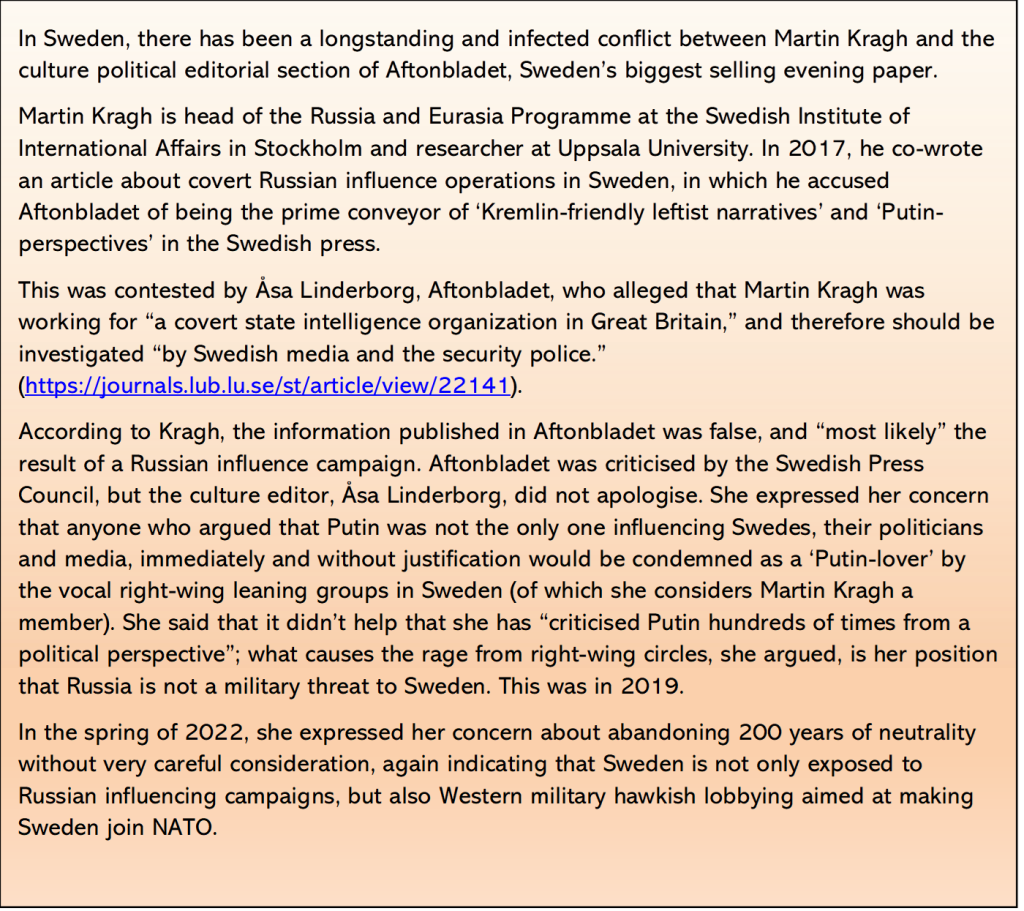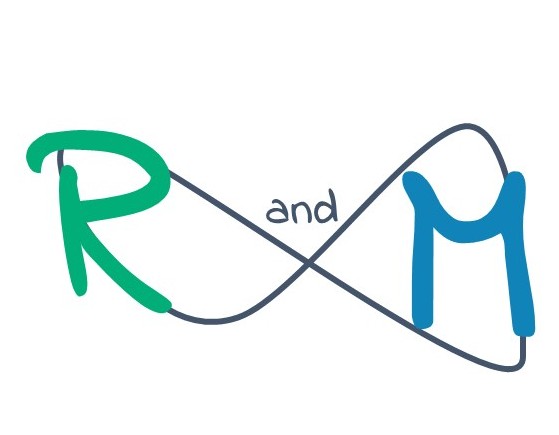Truth and consequence

On warfare, propaganda and difficult choices
The government of Sweden has now abandoned a 200-year-old strategy to keep out of formal military alliances. There may well be compelling reasons for a change – many politicians argue that there are – but the forced pace of this decision and the lack of any reasonable public consultation make me concerned. And it is a decision driven by fear, taken under pressure in a volatile situation. In my view this is not a good starting point for an undertaking which will have huge and long-lasting consequences, not only for Sweden and its inhabitants, but for many other people in the world.
Below is an edited English version of a text I wrote some time ago, when it had become clear in my mind that a Swedish application to join NATO was imminent.
Believing that there is something like total objectivity and a one and only truth in infected political situations seems naïve, in certain cases even bordering on fatal. Many refer to having ‘followed the science’ or ‘listened to the scientists’ when they express their views on different issues. But what does that really mean? Most researchers strive for an objective gaze and take great care in critical assessment of their sources, with the ambition not only to find support for their hypotheses but to actively look for potential evidence that they may be wrong before making their statements public. But no doubt there are also researchers who don’t live up to good scientific practice. The problem is to know whom to believe in when there is a polemical situation. Who scrutinises the scrutiniser, and how objective is that person? I immediately get suspicious if, in a debate, both sides rubbish everything the other side says, with a focus more on personal attacks than on the subject of the discussion. Such behaviour indicates locked positions and that the mudslinging is part of a propaganda campaign rather than an attempt to have a genuine debate.
Now that Putin is waging a war in Ukraine I think it is more important than ever before that our politicians make decisions about Swedish security politics that are as wise and well-reasoned as they can be. However, in a climate of polarised debate what is ‘truth’ for one side is immediately appointed ‘propaganda’ and ‘fake news’ by their opponents, and vice versa. And then we just build conflicts instead of solving problems.
The feud between Åsa Linderborg and Martin Kragh is a case in point (see text box below)

I never read Martin Kragh’s 2017 report about the threat from Russia. But I have followed with interest (and to some extent dread) the row that took place in the wake of its publication, and subsequent references to the conflict in Swedish press. It seems to me that he is used as a pawn. Different groupings refer to his writings to justify their own opinions, while at the same time throw suspicion on the other side; and not always with arguments that can be verified objectively.
I understand why Martin Kragh warned about Russian expansionism and aggression under Putin. But I also understand Åsa Linderborg’s concern about being labelled a ’Putin-apologist’ when she points out that Putin’s Russia is not the only producer of propaganda; it comes from NATO countries as well. There may be a world of difference between their ulterior motives, but the aim is the same: to influence the way we think.
Any war is deplorable, and a failure for humanity. The war in Ukraine is no exception. I am deeply upset about this tragedy.
But nothing is completely black or white, not even in a war situation. It should be possible to both support a country that has been invaded by a dictatorial neighbour state, and at the same time remark on some occurrences in this country that deserve scrutiny or even criticism. Writing that Ukraine has had problems with corruption and a weak democracy does not mean that you express sympathy with Putin or his actions; nor should a discussion if it is a problem that there are some nazi-tainted groupings operating under Ukrainian flag. Do we really have to hate Russia and everything Russian to be regarded as showing enough solidarity with the Ukrainian people who are exposed to un unjustifiable war? Is it really only Russian soldiers who behave badly in a war? Are all Ukrainians perfect democrats without any negative characteristics whatsoever? Is it reasonable to demonise all Russians for having a dictator as their leader? Must one love Zelensky without reservations, and all his politics, too?
I think we must be able to discuss things like these in a nuanced way. And from my Swedish perspective, it should be possible to feel both strong anger and frustration over what Putin has done and does in Ukraine, without necessarily seeing a Swedish membership of NATO as the only, and simple, solution to my country’s security problems. The consequences of membership of NATO are far-reaching and should have been discussed more, and more openly, before a decision was made.
Against this background I found it very interesting to read Martin Kragh’s latest publication, a book titled The fallen empire: Russia and the West under Putin (March 2022). Having done my research on his background and other writings, I have no evidence to suggest other than that he in his writing and analysis tries to be objective, and I’m reasonably assured that he will not produce outright lies. But if what he publishes is ‘the truth, the whole truth and nothing but the truth’ is another matter.
To me the most important thing is the ambition to openly and honestly seek the truth – and in the assessment of what is ‘truth’ we must be aware that all of us are exposed to a huge amount of influencing from all corners, ranging from unintentional biased information to deliberate subversive misrepresentation and disinformation.
